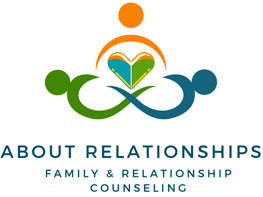Romance through the lens of Culture and Identity
In my years of working with couples and individuals, one thing has become abundantly clear: romance is deeply intertwined with culture and identity. Our romantic practices are shaped by the traditions we inherit, the identities we embody, and the social contexts we navigate. Understanding this intersection is crucial for building healthy, fulfilling relationships, especially in a world that is increasingly diverse and interconnected.
The Cultural Influence on Romance
Culture plays a significant role in how we express love, form connections, and maintain relationships. For instance, in some cultures, romance is closely tied to family approval and social standing, while in others, personal autonomy and individual choice are paramount. These cultural frameworks shape not only our expectations of romance but also how we communicate love and navigate conflicts.
For example, in cultures where collectivism is emphasized, romantic relationships may be seen as an extension of family or community bonds. By contrast, in more individualistic cultures, the focus might be on the couple’s personal satisfaction and emotional connection. Neither approach is inherently better or worse; they are simply different ways of understanding and experiencing love.
Intersectionality and Identity in Romantic Relationships
Intersectionality—the idea that various aspects of identity, such as race, gender, sexuality, and class, intersect to shape our experiences—also plays a crucial role in how we navigate romance. For example, a Latina woman in a same-gender relationship may face unique challenges related to both her race and sexual orientation, which can influence how she experiences and expresses love. Similarly, a heterosexual couple from different cultural backgrounds might encounter tensions between their cultural expectations and their personal desires.
In my work with couples, I’ve seen how these intersecting identities can create both challenges and opportunities for connection. For instance, partners may need to navigate differing cultural norms or confront societal prejudices that impact their relationship. At the same time, these intersections can also deepen their bond, as they learn to support each other through shared and divergent experiences.
Navigating Romance in a Multicultural World
As a therapist, I’ve found that helping couples and individuals explore the cultural and intersectional aspects of their relationships can be incredibly empowering. It allows them to better understand their own needs and those of their partner, fostering empathy and communication. Here are a few strategies I often recommend:
1. Cultural Awareness and Respect: Encourage open conversations about each partner’s cultural background and how it influences their expectations of romance. This can help build mutual respect and understanding, allowing both partners to honor each other’s traditions while finding common ground.
2. Exploring Intersectional Identities: Discuss how each partner’s identities shape their experiences in the relationship. This can include exploring the impact of race, gender, sexuality, and other factors on how they relate to each other and the world around them.
3. Building Empathy Through Shared Stories: Sharing personal stories about how culture and identity have shaped each partner’s view of love can deepen empathy. Understanding where your partner is coming from can create a stronger emotional connection.
4. Challenging Stereotypes and Biases: Address any stereotypes or biases that may be influencing the relationship, whether they stem from external societal pressures or internalized beliefs. This can help partners support each other in confronting and overcoming these challenges.
5. Adapting to Change Together: Recognize that cultural and intersectional identities are not static. As partners grow and change, so too may their understanding of romance and their needs within the relationship. Being adaptable and open to evolving together can strengthen the relationship over time.
Romance is not a one-size-fits-all experience; it is deeply influenced by the cultural and intersectional identities we bring into our relationships. By embracing this complexity and engaging in open, empathetic conversations, couples can navigate these intersections in ways that enhance their connection and enrich their love. As a therapist, my role is to guide them in this journey, helping them to see and celebrate the unique ways in which their identities shape their romance.
